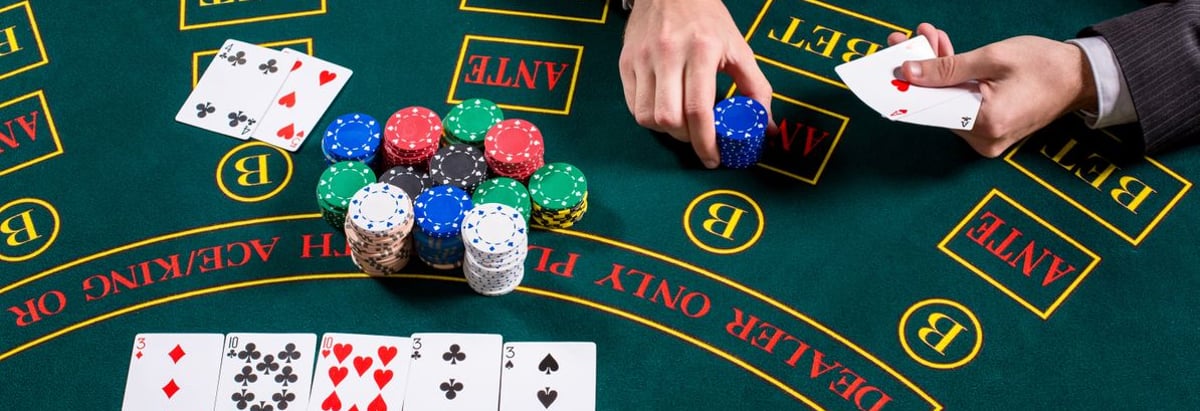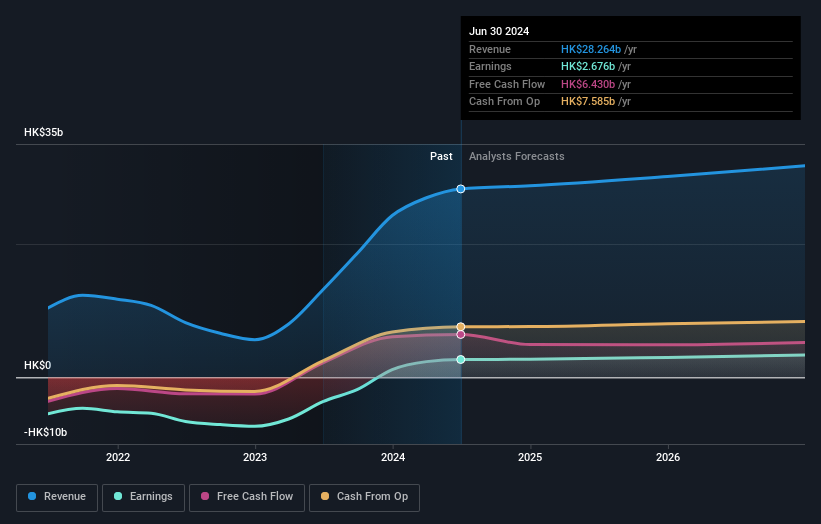- Hong Kong
- /
- Hospitality
- /
- SEHK:1128
Painful week for public companies invested in Wynn Macau, Limited (HKG:1128) after 5.2% drop, institutions also suffered losses

Key Insights
- The considerable ownership by public companies in Wynn Macau indicates that they collectively have a greater say in management and business strategy
- 72% of the company is held by a single shareholder (Wynn Resorts, Limited)
- Institutional ownership in Wynn Macau is 17%
Every investor in Wynn Macau, Limited (HKG:1128) should be aware of the most powerful shareholder groups. The group holding the most number of shares in the company, around 72% to be precise, is public companies. Put another way, the group faces the maximum upside potential (or downside risk).
While institutions who own 17% came under pressure after market cap dropped to HK$30b last week,public companies took the most losses.
Let's take a closer look to see what the different types of shareholders can tell us about Wynn Macau.
See our latest analysis for Wynn Macau

What Does The Institutional Ownership Tell Us About Wynn Macau?
Institutions typically measure themselves against a benchmark when reporting to their own investors, so they often become more enthusiastic about a stock once it's included in a major index. We would expect most companies to have some institutions on the register, especially if they are growing.
We can see that Wynn Macau does have institutional investors; and they hold a good portion of the company's stock. This suggests some credibility amongst professional investors. But we can't rely on that fact alone since institutions make bad investments sometimes, just like everyone does. It is not uncommon to see a big share price drop if two large institutional investors try to sell out of a stock at the same time. So it is worth checking the past earnings trajectory of Wynn Macau, (below). Of course, keep in mind that there are other factors to consider, too.

Hedge funds don't have many shares in Wynn Macau. Wynn Resorts, Limited is currently the largest shareholder, with 72% of shares outstanding. This implies that they have majority interest control of the future of the company. Meanwhile, the second and third largest shareholders, hold 5.9% and 4.9%, of the shares outstanding, respectively.
While studying institutional ownership for a company can add value to your research, it is also a good practice to research analyst recommendations to get a deeper understand of a stock's expected performance. Quite a few analysts cover the stock, so you could look into forecast growth quite easily.
Insider Ownership Of Wynn Macau
While the precise definition of an insider can be subjective, almost everyone considers board members to be insiders. The company management answer to the board and the latter should represent the interests of shareholders. Notably, sometimes top-level managers are on the board themselves.
I generally consider insider ownership to be a good thing. However, on some occasions it makes it more difficult for other shareholders to hold the board accountable for decisions.
Our information suggests that Wynn Macau, Limited insiders own under 1% of the company. It's a big company, so even a small proportional interest can create alignment between the board and shareholders. In this case insiders own HK$66m worth of shares. Arguably, recent buying and selling is just as important to consider. You can click here to see if insiders have been buying or selling.
General Public Ownership
With a 11% ownership, the general public, mostly comprising of individual investors, have some degree of sway over Wynn Macau. This size of ownership, while considerable, may not be enough to change company policy if the decision is not in sync with other large shareholders.
Public Company Ownership
It appears to us that public companies own 72% of Wynn Macau. We can't be certain but it is quite possible this is a strategic stake. The businesses may be similar, or work together.
Next Steps:
I find it very interesting to look at who exactly owns a company. But to truly gain insight, we need to consider other information, too. Consider risks, for instance. Every company has them, and we've spotted 2 warning signs for Wynn Macau you should know about.
If you are like me, you may want to think about whether this company will grow or shrink. Luckily, you can check this free report showing analyst forecasts for its future.
NB: Figures in this article are calculated using data from the last twelve months, which refer to the 12-month period ending on the last date of the month the financial statement is dated. This may not be consistent with full year annual report figures.
Valuation is complex, but we're here to simplify it.
Discover if Wynn Macau might be undervalued or overvalued with our detailed analysis, featuring fair value estimates, potential risks, dividends, insider trades, and its financial condition.
Access Free AnalysisHave feedback on this article? Concerned about the content? Get in touch with us directly. Alternatively, email editorial-team (at) simplywallst.com.
This article by Simply Wall St is general in nature. We provide commentary based on historical data and analyst forecasts only using an unbiased methodology and our articles are not intended to be financial advice. It does not constitute a recommendation to buy or sell any stock, and does not take account of your objectives, or your financial situation. We aim to bring you long-term focused analysis driven by fundamental data. Note that our analysis may not factor in the latest price-sensitive company announcements or qualitative material. Simply Wall St has no position in any stocks mentioned.
About SEHK:1128
Wynn Macau
Engages in the development, ownership, and operation of integrated destination casino resorts in the People’s Republic of China.
Very undervalued with limited growth.

